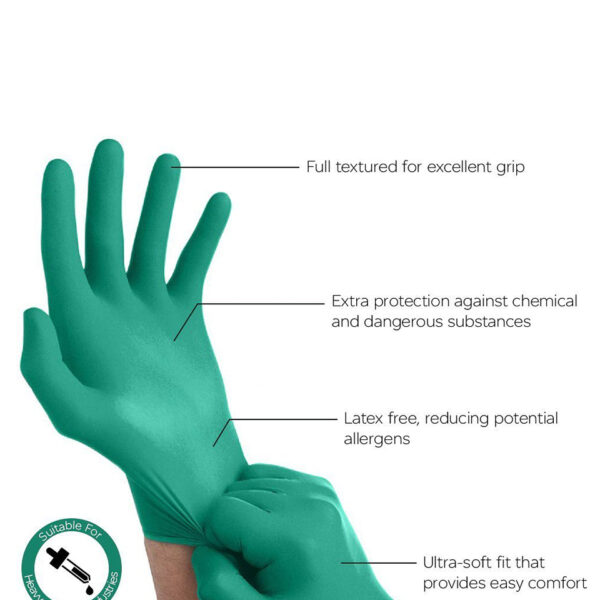In today’s health-conscious world, more men are turning to supplements to enhance their overall well-being. Whether you’re looking to build muscle, boost energy, or support heart health, the right supplements can make a significant difference. But with countless options on the market, how do you determine which ones are truly beneficial? This guide will explore the top health supplements that every man should consider, helping you make informed choices for your health journey.
Why Health Supplements Matter for Men
As men age, their bodies undergo various changes that can impact energy levels, muscle mass, and even cognitive function. While a balanced diet and regular exercise are fundamental to maintaining health, supplements can provide an extra edge. They help bridge nutritional gaps, support specific health goals, and can even improve longevity.
Key Health Concerns Addressed by Supplements
Certain health concerns are more prevalent in men, and Health Supplements fo men can play a crucial role in addressing them:
- Heart Health: With heart disease being a leading cause of death among men, supplements like omega-3 fatty acids, CoQ10, and magnesium can support cardiovascular health.
- Bone Health: Men are not immune to bone density loss. Calcium, vitamin D, and magnesium are vital in maintaining strong bones as men age.
- Prostate Health: As men get older, prostate health becomes a concern. Supplements like saw palmetto and zinc can help support prostate function and reduce the risk of enlargement.
Top Health Supplements for Men
When it comes to choosing supplements, certain products stand out for their proven benefits in men’s health:
1. Omega-3 Fatty Acids
Omega-3 fatty acids are essential for heart health, reducing inflammation, and supporting brain function. Fish oil supplements are a popular source of omega-3s, providing EPA and DHA, which are crucial for cardiovascular health. For those who prefer plant-based options, flaxseed oil and algae oil are excellent alternatives.
2. Multivitamins
A daily multivitamin ensures that you’re getting a broad spectrum of essential vitamins and minerals. Look for one tailored to men’s health, with higher amounts of B vitamins, zinc, and selenium, which are crucial for energy production, immune function, and reproductive health.
3. Vitamin D
Vitamin D is critical for bone health, immune support, and testosterone production. Men who spend most of their time indoors or live in northern climates may be at risk of vitamin D deficiency, making supplementation necessary.
4. Magnesium
Magnesium supports muscle function, energy production, and cardiovascular health. It’s also known to help with stress reduction and improving sleep quality. Magnesium supplements come in various forms, including magnesium citrate and magnesium glycinate, each with specific benefits.
5. Creatine
Creatine is one of the most researched supplements for muscle building and athletic performance. It helps increase strength, power, and muscle mass, making it ideal for men who engage in regular weight training or high-intensity workouts.
6. Zinc
Zinc is vital for immune function, testosterone production, and wound healing. Men who are physically active or under high stress may require more zinc, making supplementation beneficial. It’s also a key mineral for maintaining prostate health.
7. Saw Palmetto
Saw palmetto is often used to support prostate health and prevent issues like benign prostatic hyperplasia (BPH). It may also help balance hormone levels and support urinary tract health in men.
8. Coenzyme Q10 (CoQ10)
CoQ10 is an antioxidant that plays a key role in energy production and heart health. It can help reduce blood pressure, improve heart function, and even boost energy levels, making it particularly beneficial for older men or those with cardiovascular concerns.
9. Probiotics
A healthy gut is crucial for overall well-being, impacting everything from digestion to immune function. Probiotics can help maintain a healthy balance of gut bacteria, supporting digestion, nutrient absorption, and even mental health.
10. Protein Powder
Whether you’re looking to build muscle or simply increase your daily protein intake, protein powders are a convenient option. Whey protein is the most popular choice due to its high biological value and fast absorption. However, plant-based proteins like pea, hemp, or rice protein are great alternatives for those with dietary restrictions.
Choosing the Right Supplements for Your Needs
Selecting the right supplements requires consideration of your specific health goals, dietary habits, and lifestyle. Here are a few tips:
- Assess Your Diet: Identify any nutritional gaps in your diet that supplements could help fill.
- Consult with a Healthcare Professional: Before starting any new supplement, it’s essential to consult with a healthcare provider, especially if you have underlying health conditions or are taking medications.
- Focus on Quality: Choose supplements from reputable brands that undergo third-party testing to ensure purity and potency.
Potential Side Effects and Precautions
While supplements can offer numerous health benefits, they can also have potential side effects, especially if taken in excess or combined with certain medications:
- Overdose Risks: Fat-soluble vitamins like A, D, E, and K can accumulate in the body and become toxic if taken in large amounts.
- Drug Interactions: Some supplements can interact with medications, either reducing their effectiveness or increasing the risk of side effects.
- Allergies and Sensitivities: Always check supplement labels for potential allergens, especially if you have known food allergies or sensitivities.
Integrating Supplements with a Healthy Lifestyle
Supplements should be viewed as part of a broader approach to health, complementing a balanced diet, regular exercise, and adequate sleep:
- Balanced Diet: Focus on whole foods rich in nutrients, including fruits, vegetables, lean proteins, and healthy fats.
- Regular Exercise: Physical activity is crucial for maintaining muscle mass, cardiovascular health, and mental well-being.
- Adequate Sleep: Quality sleep is essential for recovery, stress management, and overall health.
Conclusion
Health supplements can be a powerful tool in supporting men’s health, helping to address common nutritional gaps and promote overall well-being. By choosing the right supplements and integrating them into a healthy lifestyle, you can enhance your physical, mental, and emotional health. Always remember to consult with a healthcare provider before starting any new supplement regimen to ensure it’s the best choice for your individual needs.
FAQs
- Are there any side effects of taking health supplements?
- While supplements are generally safe when taken as directed, excessive use or combining them with certain medications can lead to side effects. Always follow recommended dosages and consult with a healthcare provider if you have concerns.
- How long should I take supplements before seeing results?
- The time frame for seeing results can vary depending on the supplement and individual factors like diet and lifestyle. Some supplements, like creatine, may show effects within a week, while others, like omega-3s, might take longer.
- Can supplements replace a healthy diet?
- Supplements should not replace a healthy diet. They are meant to complement your diet and fill in nutritional gaps, not serve as a substitute for whole foods.
- Is it safe to take multiple supplements at once?
- Taking multiple supplements is generally safe, but it’s important to ensure they don’t interact negatively with each other or with any medications you’re taking. Consulting with a healthcare provider is recommended.
- What is the best time of day to take supplements?
- The best time to take supplements can depend on the type. For example, fat-soluble vitamins are best taken with meals, while some supplements, like magnesium, may be more effective when taken before bed. Always check the label for specific instructions












